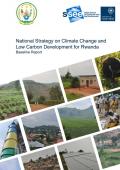Sustainable Materials Management (SMM) is increasingly recognised as a policy approach that can make a key contribution to green growth and the challenges that are posed by sustained global economic and demographic growth. One of the key challenges of the SMM approach is to effectively address the environmental impacts that can occur along the life-cycle of materials, which frequently extends across borders and involves a multitude of different economic actors.
This book outlines a series of policy principles for SMM, examines how to set and use targets for SMM, and explores various policy instruments for SMM. In addition it provides examples of policy action plans from the UK and the Netherlands, before presenting a series of conclusions and recommendations.
Questions about the ultimate size of mineral and energy resource endowments and the degree of fiscal prudence which should be exercised by countries engaged in resource extraction have become central for many developing countries during the recent resource boom. To explore these questions, this paper develops a model of optimal resource extraction and discovery that combines two polar assumptions: (i) that discovering a resource today drives up the cost of future resource discoveries, and (ii) that extracting resources yields knowledge that reduces the cost of discovery.
Although the model shows that resource discoveries should be valued at marginal discovery cost in measures of national saving and income, the ultimate size of the resource that can be exploited is the result of the interplay between rising discovery costs and accumulating knowledge. Empirical tests of the model show that the resulting income estimates would be extremely volatile for many extractive economies, owing to the lumpiness of resource discoveries. Two alternative accounting approaches, based on Hicksian concepts, yield more intuitive and less volatile income estimates.

This Baseline Report is the first step in the process of developing a National Strategy on Climate Change and Low Carbon Development for Rwanda. It provides a snapshot of the country today and the planned initiatives that will take it forward, placing it within the context of climate change. Though many opportunities are highlighted, the aim of the report is to provide the foundation for the next step where detailed analysis will take place and recommendations will be made. It includes an analysis of the following sectors: climate policy; economy, trade and industry; energy; mining; transport; cities and the built environment; agriculture; land; water and forestry.
This summary was prepared by Eldis.
